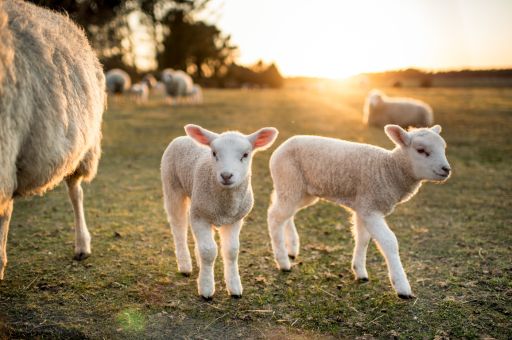Fernando Fernández, Director General of Agriculture, Livestock, and Rural Development, appeared before a parliamentary committee at the request of the parliamentary group Més per Mallorca to report on the actions taken in response to the bluetongue outbreak. In his address, Fernández stated that “the Government has already vaccinated 85% of the registered livestock population in the Balearic Islands against bluetongue and plans to complete the vaccination campaign by June.” The last confirmed case was detected on December 11, 2024. According to Fernández, “this suggests that in the second year of the outbreak, we may only see around ten new cases.”
TDB keeps you informed. Follow us on: Facebook, Twitter and Instagram
The Government Has Already Vaccinated 85% of the Livestock Population
The goal of the Ministry of Agriculture, Fisheries, and Natural Environment is to complete the vaccination campaign by June
Regarding the current vaccination coverage, the Director General noted that “it allows us to face the second year of the epidemic with a high level of immunity.” He added, “completing the vaccination in June is ideal, as this is when the activity of the Culicoides mosquito—the vector of bluetongue—increases due to rising temperatures.”
The bluetongue vaccination campaign began in November, one month earlier than initially planned. Fernández recalled that the Ministry worked from the outset to secure a vaccine against serotype 8 of the bluetongue virus. Once the first batch was obtained, vaccination efforts began, helping to ease the situation for livestock farmers.
Additionally, Fernández explained that “in managing the bluetongue epidemic, the Ministry maintained constant communication with the livestock sector—including agricultural organizations, cooperatives, and Livestock Health Defence Associations (ADS)—and their input was considered in decision-making. The collaboration of all parties, especially field veterinarians, has been essential.”
He also highlighted that the Government has carried out two studies: one on the clinical impact of bluetongue serotype 8 and another on its economic impact. One of these studies was conducted in coordination with the Ministry of Agriculture, Fisheries, and Food, and with the other four autonomous communities affected by serotype 8. The results of the clinical impact study will help update the current knowledge on this serotype and pave the way for bluetongue to potentially be included as an insurable disease under the national agricultural insurance scheme for sheep shortly.
Furthermore, the Ministry of Agriculture, Fisheries, and Natural Environment has allocated an annual budget of €800,000 over three years to cover testing, analysis, and the vaccination campaign. In this regard, Fernández stated that three support measures have been established. First, requirements to access the coupled CAP aid for meat and dairy sheep have been relaxed for the 2024 and 2025 campaigns. Second, €1.4 million in aid will be allocated to farms affected by bluetongue. Third, €400,000 will be available for restocking sheep and rams on sheep farms in the Balearic Islands.
During his appearance, Fernández also referred to the legal framework for managing bluetongue and reviewed the timeline leading up to the official declaration of the epidemic. He also provided context on how the outbreak has evolved in the Balearic Islands compared to the situation at the national and European levels.
